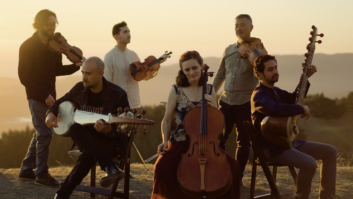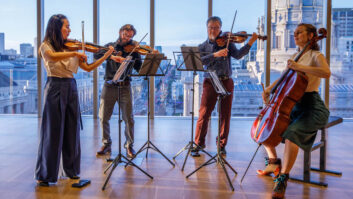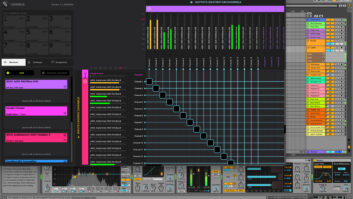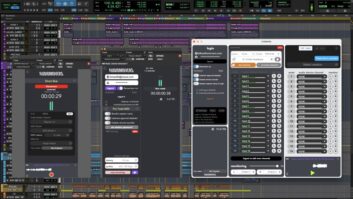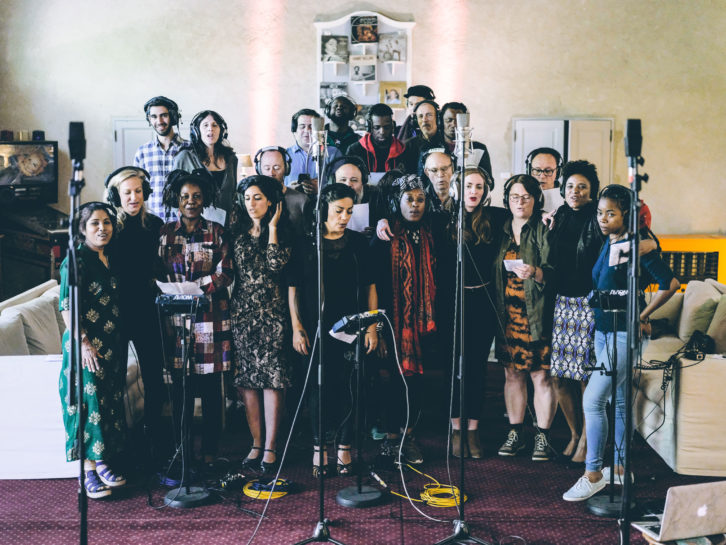
When 23 musicians from 17 countries converged to create the recent Same Sky for Beyond Music, it was the precise illustration of the concept that music is the universal language. By all accounts, the project took place in complete harmony.
Regula Curti and Konstanze Wiedermann created the Swiss organization Beyond Foundation in 2007 and, with the support of Tina Turner, released several albums over the ensuing years. Then a couple of years ago, the two created an offshoot—Beyondmusic.org—fully funded by the Curti family assets. The premise was to unite cultures by asking two musicians from two different countries to work together on an original piece of music, on a digital platform that they would create and at no charge to the participants.
When Grammy-winning producer/songwriter/musician Larry Klein was approached two years ago to become the organization’s first artistic director and producer of the inaugural Beyond Music project, he was impressed by the scope of the concept.
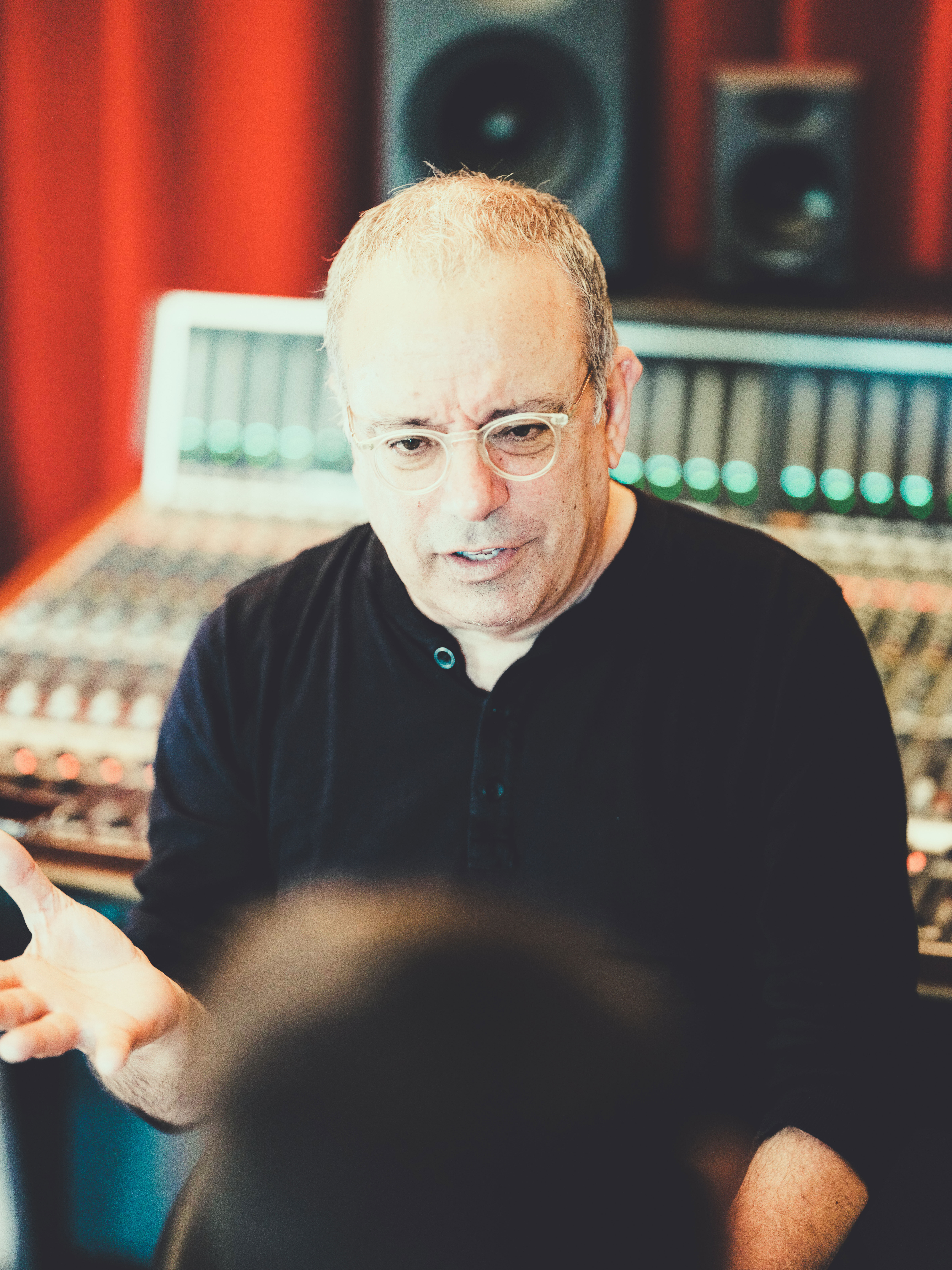
“The potential was enormous to enable people from all over to write music with people they would never come in contact with otherwise,” Klein says. “I was pretty blown away.”
Submissions were accepted between November 7, 2018, and March 10, 2019. Ultimately, Klein reviewed close to 150 entries. Then, for one month, fans could vote once a day and the top three received financial awards. The compositions were to address global peace and, as President Abraham Lincoln put it, “the better angels of our nature.” But it ended up going so much further than the songs. As the participants convened, the atmosphere reflected such a unity.
The songs that won the fan vote had no bearing on the ten Klein chose for the record. The foundation also decided that there would be two additional collective collaborations done on the premises. They chose Studios La Fabrique—a residential “piece of heaven,” Klein says—in the South of France, and brought in engineer Maxime Leguil.
“There was no friction between people born of cultural enmity,” Klein attests. “Not between Arabs and Israelis, Syrians and Israelis. It was really a storybook time. Everyone loved each other.”
The house band—Dan Lutz on bass, Clive Deamer and Manu Katche sharing drum duties, Ed Harcourt on keyboards, and Adrian Utley and Dean Parks on guitars—were chosen for “their high level of intuition and, of course, musical ability, but openness, curiosity and adventurousness,” Klein says.
Leguil tracked the songs on a Neve 88R console, supplemented by some of his vintage Neve 1084 preamps, as well, which he loves on vocals and bass.
“We did EQ while tracking, using the desk and a few Pultecs, while compression was mostly handled by the classic UREI 1176s, Neve 33609, Tube Tech CL1B and EAR 660s,” Leguil explains. “The good thing was that the sources were really good because we had great musicians and great acoustics. Also, I brought quite a few vintage mics I’ve collected over the years, mainly vintage Neumann U67s, U47s, U47 FET and U87s.”
Leguil describes the process as very open and like a “cool party,” where anyone who had an idea could join the band and play live. That meant he had to be ready to record at all times.
He says, “Of course, then Larry would guide the process and clear out some of the parts as everybody was jamming and rehearsing, to give a shape to the arranging. Then we would record two or three takes and we’d usually be done, including vocals, which were tracked live in 90 percent of the cases.”
Quite a few mics were kept open in all the rooms, ready to capture everything at all times, though the team was careful to keep on top of the sound and not allow it to become too messy.
“The great thing in terms of getting sounds when you have six to eight people playing at the same time and vocals—you have to make decisions quickly about what sounds work well together, and you don’t overthink, and once you have an overall vibe which fits the song, it’s very satisfying,” Leguil states. “In terms of vocal mics, we did not have much time to experiment with each singer, so I would usually start with a Neumann 67 because you can never go wrong.”
During the recording many of the artists watched the process in the large control room, which guitarist Dean Parks says he found quite enjoyable. Other artists formed clusters of groups to work on the two collaborative pieces.
“It was a hyper-creative environment,” Klein says. “I went through quite a withdrawal when it came to an end.”
For Klein, being immersed in music day and night is always his preferred state of being. But he notes that this experience was different. It was life-changing for many of the participants. Klein relays such a story about Danielle Eog Makedah from Cameroon, who wrote the lyrics to “Ma Ding Wo Avale One” (I Love You Just the Way You Are).
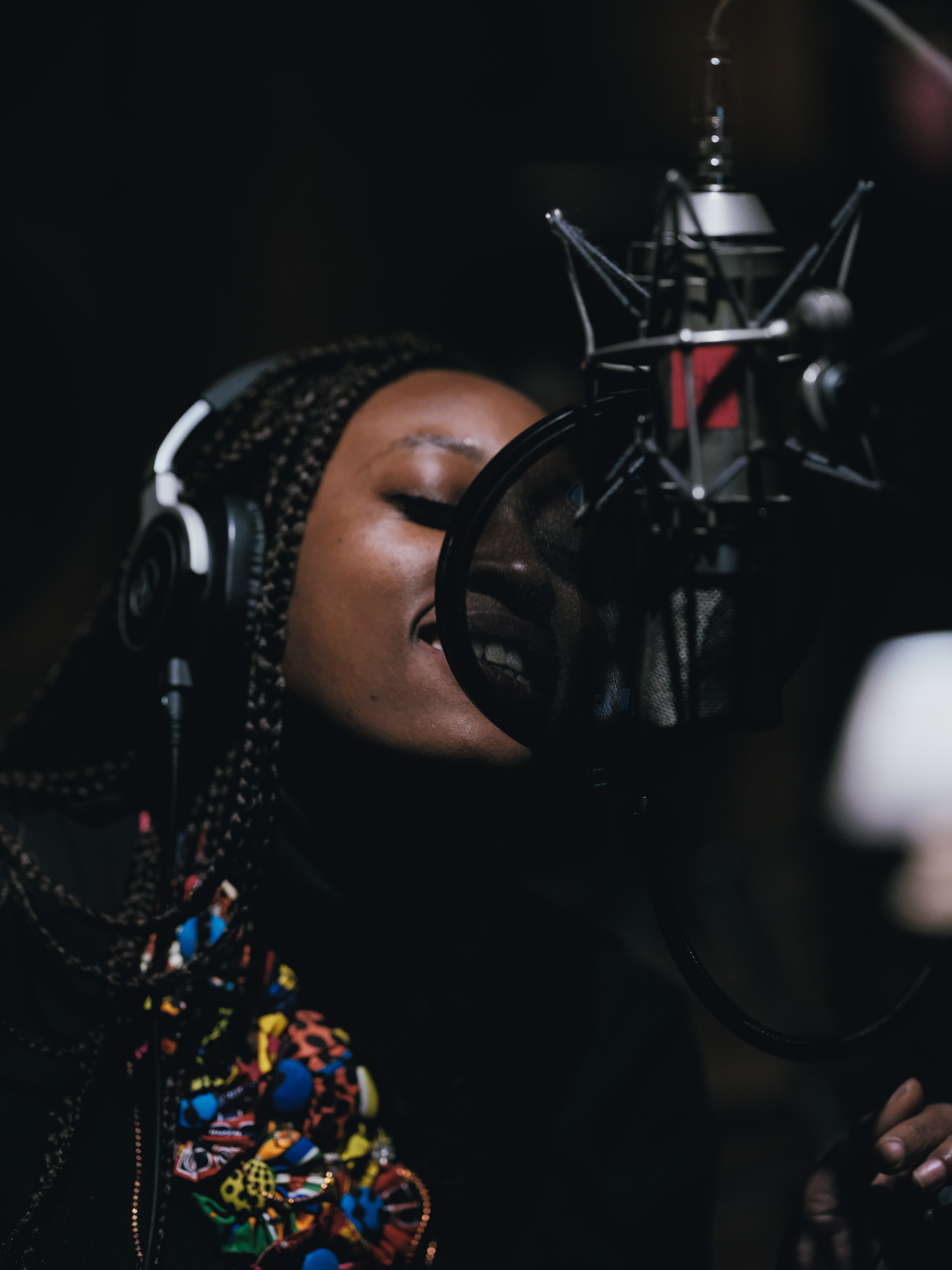
Klein discovered that Makedah wrote the song for her daughter, who had been born with a cleft palate. She revealed to Klein that when she told her parents she wanted to be a musician, her parents were not supportive. When she got pregnant, the baby’s father disappeared and her parents wanted her to put the baby in an institution, but she refused.
“In the end, she had to split from her parents,” Klein says. “They disowned her. So this song is addressed to her daughter and the song itself is just great. This woman has such a strong sense of self. And then, after all this, I just heard from Regula that she knows a doctor in Zurich who has an organization that is dedicated to fixing cleft palates for underprivileged people, so Regula is going to work it out for her daughter. There were a lot of stories that were amazing. When you listen to that song knowing the background, it is a very moving piece of music.”
Artist Heather Bond, who lives in Nashville, contributed to three selections and agrees that the event was transformative.
“I was most surprised by the connections,” Bond explains. “I knew I was going to go to this magical place and make music with Larry and these people, and it was going to be a once-in-a-lifetime opportunity. But I didn’t know I would form connections with these people that feel like lasting friendships.
“The whole experience feels very surreal to me,” Bond continues. “It was very overwhelming, but in a good way. I would wake up every day excited to see what was going to happen. It was different every day, and we didn’t really have a plan. We’d get to the studio and Larry would conference what he had in mind for the day. And every day was an adventure. And it was so beautiful there. It was such a magical place.”
Bond, who collaborates often in Nashville, loved the opportunity to do so on a world scale. She ended up working on three tracks via the WhatsApp messenger and said the platform was easy to use as she searched for musicians in places she has always wanted to visit.
“Each of the writers I worked with was so open and really good at communicating,” Bond says. “It really felt like I was making an in-person connection even though we didn’t know each other. I got really lucky.”
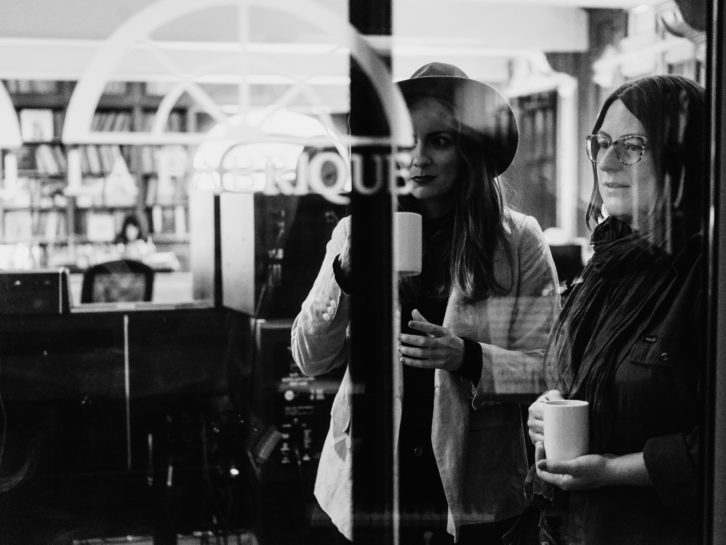
Once she got to France, Bond says, there was an immediate kinship and the recording was unlike any she had done in Nashville. For her, the packed control room was something she had to get used to, as well as the camera crew.
Beyond Music plans to release a new project every 18 months, with each having a new artistic director for a new direction. The biggest challenge Klein found—to be rectified on the subsequent Beyond Music projects—was the mixing process. Two weeks in the studio meant only enough time for the recording. Therefore, when he returned to Los Angeles to mix with engineer Tim Palmer, they realized there was just too much to mix to reach the deadline.
“With some of the tracks we were in a perpetual state of experimentation, so there was a lot of editing and comping and sorting to do after the fact,” Klein says. “I just didn’t have the time.”
So Klein divided the work among a group of mixers: Stephen Lipson, Tchad Blake, Maxime Leguil, Adam Greenspan and Palmer.
“That was quite complicated because everyone was in their own places,” Klein says. “I told them the next time they should make the recording period one week longer and mix everything on the premises, so as soon as they leave the place, the record is done.”
For Palmer, who mixed the lion’s share of the tracks—“El Clavel del Aire,” “You Changed Me,” “Better Together,” “Different You and I,” “More of Us” and “We Are One”—it was comfortable mixing at his Austin, Texas, studio.
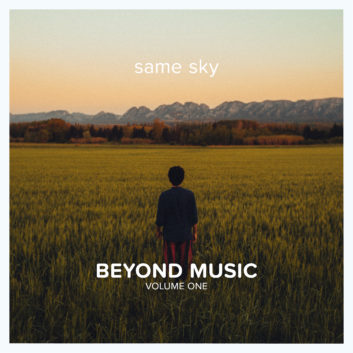
“My setup is a hybrid concept,” Palmer explains. “I like to take the best of both the analog and digital worlds. I haven’t mustered up the courage to mix completely in the box yet. I love the convenience of plug-Ins and the whole recall aspect of digital, but I still enjoy the warmer sound of analog, so every output from my Pro Tools 192 goes directly into one of the 24 channels of my Tonelux setup. I have some EQ and compression in my Tonelux setup, too, but the donkeywork is done inside the DAW.
“I sum everything back into Pro Tools, but not before it goes through an SSL compressor and a GML stereo EQ,” he continues. “I generally use a combination of Universal Audio, Waves and Sound Toys plug-ins, but I’m also loving the Fab Filter bundle and Vulf Compressors. My favorite recent reverb is the Capitol Chambers, which I love.”
Participants all defined the Beyond Music experience as music without borders, without barriers, without prejudice and a way to address world crises.
“The state of the world is so dreadful right now that this kind of thing is really the ideal way to push against all of this fear and nationalism and people drawing back behind their tribal and national borders,” Klein says.
For more information, visit www.beyondmusicproject.org.
